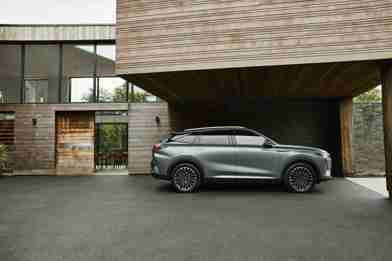BMW AG’s vice-president of governmental affairs, Andreas Klugescheid, was in Melbourne last week for the launch of the i8 roadster, and spoke to Driven about two of the most important aspects in motoring.
What do you think is the best incentive for governments to use to encourage EV buyers: money or user behaviour incentives like in California, an EV-only lane on the freeway?
There’s no cherry picking. I think the monetary incentives for the time being are decisive, just to get people interested and make them think.
Germany is a good example as we have a large portion of car fleets where customer ownership topics are key.
More often than not, car fleet managers decide by sheer cost of ownership budgets.
Obviously, there is also the question of incentivising the pick-up of electric mobility.
In California that non-monetary incentive like a lane-usage privilege is exciting and there is a strong demand for them.
At some point, though, you need to phase them out, because that’s the nature of incentives, they’re more temporary.
It’s clear they’ve been needed up to now; we see in the numbers that every country with a sound level of incentives is moving forwards with electric mobility.
Are you surprised how fast EVs have developed in the past 10 years?
In terms of technology, it has been certainly a positive surprise, but even better news is that we are still at the beginning of this technology.
So when you think about internal combustion engines in vehicles that are out and about in 130 years more or less, you can say that electric vehicles will break through [in] 10 years, and probably less than that.
So there’s much to come, I think, and even today we already have very usable, very good, electric vehicles — it’s getting better with each generation, so it’s good.
For BMW’s i performance line-up there is the i3, i8 and soon the i4, but do you see a need for an i SUV style car?
Like the Jaguar I-Pace, something sporty rather than an EV version of the X3 SUV?
When you look into the BMW portfolio you will see that we have a huge classical sport utility vehicle, we have the matching coupe, and do not see any reason why that shouldn’t hold true also for electric vehicles in the future.
You were also talking about autonomous vehicles and the theory of whom a self-driving car is going to hit; a 16-year-old girl or an 80 year-old-man. Tell us more about that.
This is not what is happening in traffic reality. These dilemma situations hardly ever happen.
We went into accident research, we checked all that out and it hardly ever happens, for a start.
The car is not going to decide about this girl is a teenager and [has] 70 years to live and that person over there, he’s 80, he’s going to die in two weeks — but the car will always decide, so to say, on technical situations.
Keep in mind we are talking here about marginal numbers — and, on the other hand, we have the 95 per cent of accidents that will not happen any more.




